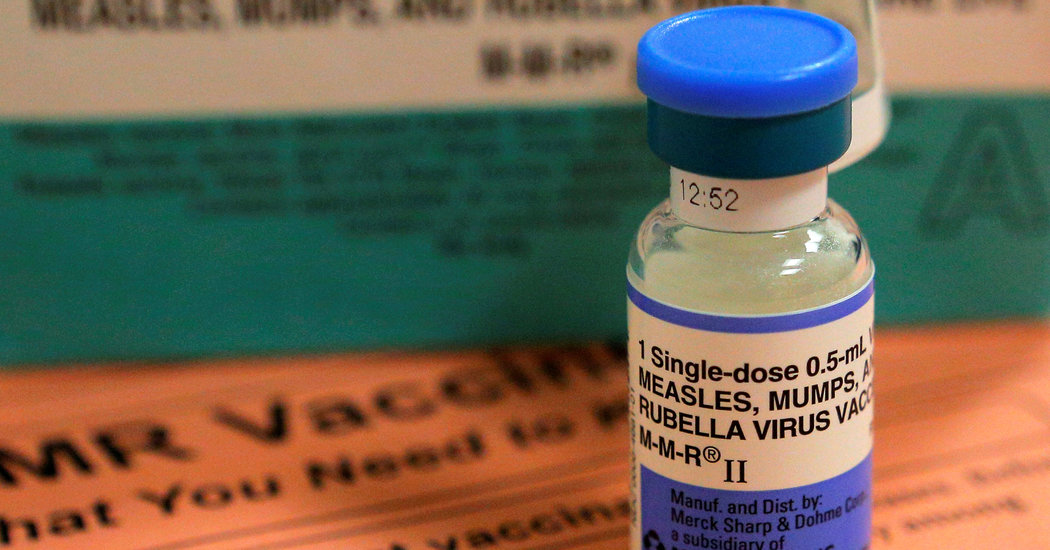
There have been more measles cases in the United States the first five months of 2019 than there were in all of 1994, when the last large outbreak occurred, federal health officials said on Thursday, in part because of the spread of misinformation about vaccines.
The Centers for Disease Control and Prevention said Thursday that there had been 971 known cases of measles in the United States so far this year.
That is eight more cases than the previous high in 1994, when 963 cases were reported in the United States all year. And it is a sharp jump from last year, when just 372 cases were reported, the center said.
“Measles is preventable and the way to end this outbreak is to ensure that all children and adults who can get vaccinated, do get vaccinated,” Dr. Robert Redfield, the director of the C.D.C., said in a statement.
[Here’s our full coverage about the measles outbreak.]
“Again, I want to reassure parents that vaccines are safe, they do not cause autism,” he added. “The greater danger is the disease that vaccination prevents.”
The center pointed to a continuing outbreak in New York City and Rockland County, N.Y., as posing a particular public health threat.
There had been 500 confirmed cases of measles in New York City since September 2018 as of May 29, the New York City Department of Health and Mental Hygiene said Thursday. Rockland County officials said 254 cases of measles had been reported there as of May 28.
Measles is a highly contagious virus that can cause serious respiratory symptoms, fever and rash, as well as permanent deafness or encephalitis in severe cases, according to the C.D.C.
The measles vaccine, which was first licensed in 1963, is extremely safe and effective and causes no side effects in a majority of cases. Small numbers of people may experience a mild fever, rash, soreness or swelling after receiving the vaccine, and adults and teenagers may feel soreness or stiffness, according to the C.D.C.
But the false belief that the vaccine can cause autism has been spread online by anti-vaccine activists and promoted by celebrities like the actress Jenny McCarthy.
The nonexistent vaccine-autism link is often cited by parents who refuse to vaccinate their children, but studies have shown their concern to be unfounded.
Measles was eliminated as an endemic disease in the United States in 2000, after decades of work by public health officials to educate the public about the importance of vaccination.
But “elimination” did not mean that measles was completely absent from the United States. It meant that the country had gone more than 12 months without “continuous disease transmission.”
Smaller outbreaks have happened since then, including in 2004 and 2014, mostly among people who were not vaccinated.
The C.D.C. said on Thursday that if the current outbreak continues into the summer and fall, the United States could lose its “measles elimination status,” meaning the disease would be considered endemic in the country for the first time in a generation.
Measles killed 110,000 people globally in 2017, mostly children under 5. As many as four million people got measles each year in the United States before the vaccine became widely used, according to the C.D.C., with an estimated 400 to 500 deaths and 48,000 hospitalizations annually.
[Read about the measles virus and how it is transmitted.]

